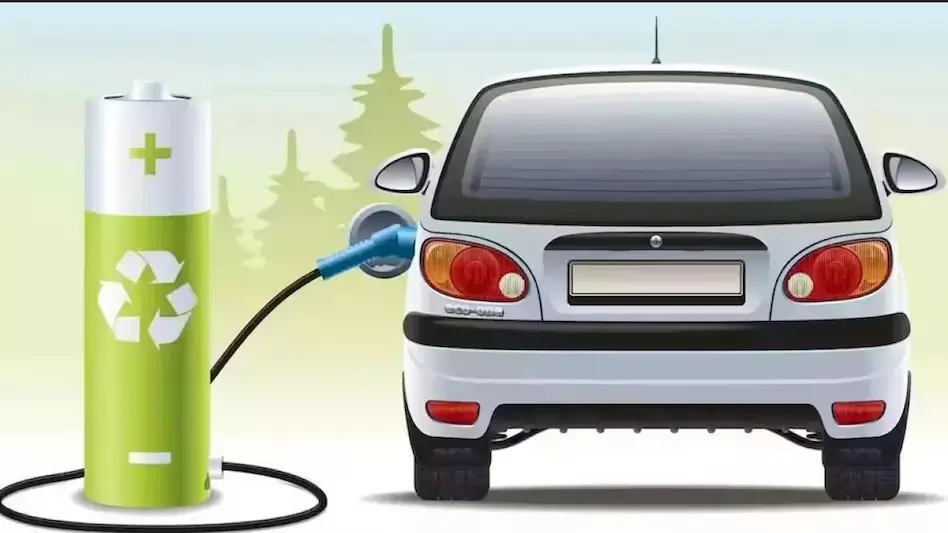
Over the last 5-6 years, the electric vehicle (EV) market in India has experienced a gradual but notable surge. Although the initial adoption of EVs was sluggish, factors such as escalating fuel prices, government incentives, and the continuous expansion of charging infrastructure have transformed EVs into a compelling choice for an increasing number of Indian car buyers.
Exploring the growth in Electric Vehicle Depreciation Rates adds another layer to understanding the evolving landscape of sustainable transportation in the country.
However, one potential drawback for consumers is that EVs tend to depreciate faster than comparable gas-powered cars in the first few years.
Curious about Electric Vehicle Depreciation Rates in the Indian market? Delve into this in-depth guide to uncover what resale value to anticipate for 1-3-year-old EVs. The guide explores the standard depreciation of recent model-year EVs in India and highlights the key factors influencing their resale value.
Table of Contents
Electric Vehicle Depreciation Rates of 1-3-Year-Old EVs in India
Like gas-powered vehicles, EVs in India tend to depreciate the most in their first three years on the market. On average, the resale value of a 1-year-old EV is about 70-75% of its original purchase price in India. By 3 years old, the EV is worth around 40-50% of its original price.
Here’s a simplified table illustrating the approximate percentage of original value retained by 1-3-year-old models of Tata Nexon EV, MG ZS EV, and Hyundai Kona Electric:
| Model | Resale Value Percentage |
|---|---|
| Tata Nexon EV | 75% – 80% |
| MG ZS EV | 70% – 75% |
| Hyundai Kona Electric | 80% – 85% |
Please note that these figures are indicative and actual values may vary based on various factors such as market conditions, mileage, and overall vehicle condition.
Observing Electric Vehicle Depreciation Rates, it’s evident that EV resale values in the Indian used car market generally align with or dip below those of comparable gas vehicles of the same age. The brisk pace of depreciation stands out as a noteworthy consideration for prospective EV buyers in India.
Factors Impacting EV Depreciation in India

What causes EVs in India to lose value so quickly in their first few years? There are a few key factors that influence the resale value:
Limited Charging Infrastructure
The scarcity of nationwide charging stations significantly contributes to Electric Vehicle Depreciation Rates in India.
Despite infrastructure progress, the limited public charging access deters buyers from investing in used EVs. A reliable home or workplace charging setup is crucial to enhance the practicality of EVs for most buyers.
Few Affordable Model Options
The EV market in India is still very nascent, with limited model options in affordable price brackets. The hyped, upcoming Rs.
10 lakh Tata Altroz EV aims to expand the affordable EV market. But for now, buyers have few lower-cost EV options, which impacts the demand and resale value of budget-used EVs.
Falling Battery Prices
The fluctuating global lithium-ion battery prices impact Electric Vehicle Depreciation Rates. Beneficial for OEMs and new buyers, the swift decline accelerates used EV depreciation in India.
A 2-3-year-old EV may seem outdated with newer models featuring lower battery prices and potentially extended range.
Lack of Clear Policy Direction
Confusion around future government EV policies also creates uncertainty in the used EV market. While the center provides incentives under the FAME II policy, state governments offer additional rebates and perks for EV buyers, such as registration fee waivers, discounted electricity rates, etc.
But there have been some flip flops, e.g. Delhi’s EV subsidy getting scrapped and reinstated. Unclear, changing policies make it riskier for buyers to invest in a used EV.
Analyzing the Electric Vehicle Depreciation Rates, these factors intricately mold the depreciation curve of pre-owned EVs in the current Indian market. Next, let’s delve into the typical resale value of India’s top-selling electric cars.
Also Read: Uncovering the True EV Ownership Cost: A Comprehensive Analysis
Resale Value of Top-Selling EV Models in India
Here is an overview of typical depreciation for some of the best-selling electric car models in India:

Tata Nexon EV
The Nexon EV is currently India’s top-selling electric SUV. Here are the typical resale price ranges for 1-3 year old versions:
- 1-year-old: Rs. 14 – 15 lakhs
- 2 years old: Rs. 12 – 13 lakhs
- 3 years old: Rs. 9 – 11 lakhs
As India’s most affordable electric SUV, the Nexon EV holds its value reasonably well compared to luxury EV offerings.
MG ZS EV
The MG ZS EV is a popular electric SUV option with a 340km range. Here are its typical used car values:
- 1-year-old: Rs. 17 – 19 lakhs
- 2 years old: Rs. 14 – 16 lakhs
- 3 years old: Rs. 10 – 13 lakhs
As a larger luxury EV, the ZS EV faces more depreciation than the Tata Nexon EV.
Hyundai Kona Electric
The Hyundai Kona has a 452km range but very limited sales. Here are the typical used prices:
- 1-year-old: Rs. 20 – 23 lakhs
- 2 years old: Rs. 16 – 19 lakhs
- 3 years old: Rs. 12 – 15 lakhs
As an imported luxury model, the Kona Electric suffers steep depreciation despite its excellent range.
Mahindra eVerito
The eVerito is Mahindra’s electrified version of the Verito sedan. Resale value is:
- 1-year-old: Rs. 7 – 8 lakhs
- 2 years old: Rs. 6 – 7 lakhs
- 3 years old: Rs. 4.5 – 6 lakhs
The eVerito offers an affordable used EV option with limited range and sales, impacting its resale value.
The Tata Nexon EV and MG ZS EV hold their value better than luxury models like the Hyundai Kona Electric or Mahindra models with low range. But all EVs face high depreciation compared to petrol or diesel models from the same brands.
Tips for Maximizing Your EV’s Resale Value in India

For those currently owning or considering the used EV market in India, here are tips to optimize your resale value amidst Electric Vehicle Depreciation Rates.
- Maintain good condition – Clean the car, address minor dents, and fix issues promptly. This allows you to sell it as a “well-maintained” car.
- Avoid frequent fast charging – Stick to slower AC charging as much as possible to maintain battery health. Fast charging can degrade the battery over time.
- Keep charging cycles low – Minimize daily charging cycles to preserve battery. Low cycles will reassure buyers.
- Check EV forums – Online forums can guide realistic asking prices for your specific model based on condition and other factors.
- Provide service records – Meticulously maintaining service records will add more value in the eyes of buyers.
- Consider battery warranty transfer – See if transferring the remaining battery and powertrain warranty to the next owner is possible. This adds peace of mind.
Following these best practices can help maximize the resale price. But be ready to negotiate for a fair price acceptable to both parties.
The Outlook for EV Resale Values in India
Anticipate the trajectory of used EV sales over the next 3-5 years as the market matures, with insights into Electric Vehicle Depreciation Rates.
- More affordable EV options will increase sales but hurt luxury model values as EVs become mainstream.
- Improving charging infrastructure will reassure more used EV buyers and stabilize resale prices.
- Clearer government policies and incentives will reduce uncertainty and buoy the used market.
- Faster tech improvements may accelerate the depreciation of early EV models in India.
- Increasing used EV inventory with more models will put downward pressure on prices.
The future of EVs is uncertain, but advancements and cost reductions may hasten Electric Vehicle Depreciation Rates.
Despite potential rapid depreciation from technological advancements, growing choices and charging infrastructure could counterbalance demand.
Key Takeaways on EV Resale Value in India
Here are some key points to remember about the resale value outlook for electric cars in the Indian market:
- Plan for EV depreciation of 30-35% per year – worse than petrol or diesel cars.
- Limited charging access accelerates depreciation as infrastructure is still developing.
- Affordable models like the Tata Nexon EV will likely fare better than pricey imports.
- Falling battery prices contribute to faster depreciation as tech keeps improving.
- Clearer government policies would build confidence in the used EV market.
- For buyers, used EVs can provide relatively affordable access to electric mobility.
Electric Vehicle Depreciation Rates may not match conventional cars, yet the low operating costs and eco-friendly advantages offset higher depreciation. Factor in resale value when contemplating new or used EV purchases in India.







